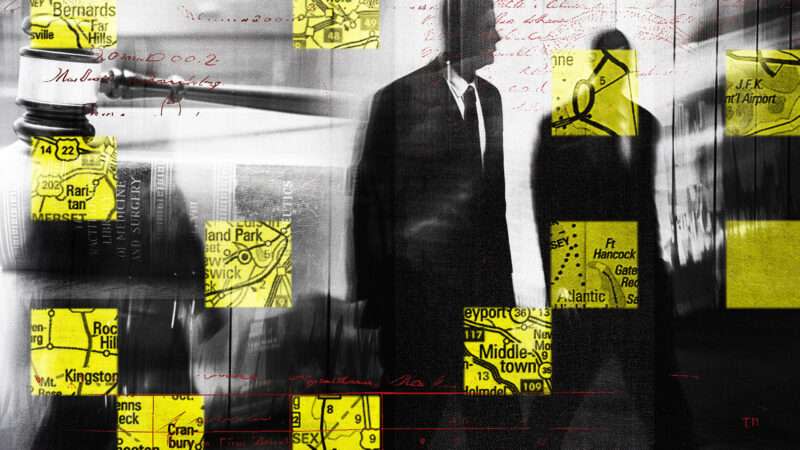New Jersey Mayors Want the Power To Sue You For Asking Too Many Questions

Just asking questions? That might become illegal, sort of, in New Jersey. Powerful interest groups there are pushing a bill that would overhaul the state Open Public Records Act (OPRA), making it harder for the public to request government documents—and the legislature might vote on it today. One provision would allow state and local agencies to sue people who request too many documents at once.
The bill states that courts can issue a restraining order against requesters who intend to "harass" government agencies or "substantially interrupt the performance of government function." The order could limit "the number and scope of requests the requestor may make," or even eliminate the requester's right to obtain government records statewide.
New Jersey politicians have been salivating over this power. Last year, the Township of Irvington sued an elderly woman, claiming that her frequent requests for information "bullied and annoyed" municipal officials. After getting bad press, Irvington backed out of the lawsuit—but then it threatened to have First Amendment lawyer Adam Steinbaugh prosecuted when he dug around for more records on the case.
The League of Municipalities, the New Jersey Conference of Mayors, and the New Jersey Association of Counties all support the bill, arguing that they've been swamped with time- and resource-wasting records requests. William Caruso, legislative counsel for the mayors' group, even claimed that the bill doesn't go far enough in restricting the public's ability to demand information.
CJ Griffin, director of the Stein Public Interest Center and vice president of the Board of Trustees for the American Civil Liberties Union of New Jersey, has denounced the bill. "And so what if tons of people want tons of records? It's OUR government. Every OPRA request means someone is engaged and wants to know what's going on in their government," he wrote on social media. (Griffin is currently representing Reason on an OPRA-related matter.)
Other parts of the bill would allow requesters to pay for fast-track access to records, require requesters to be more specific when requesting government emails, and restrict the public's access to certain types of government metadata. Critics like Griffin say that the bill would benefit commercial requesters while shielding New Jersey's notoriously corrupt, mobbed-up politics from the public eye.
For example, records obtained under OPRA were important for blowing open the 2014 "Bridgegate" scandal, when then-Gov. Chris Christie's office purposely caused highway traffic in order to punish a political opponent. A former attorney for The Record, the local newspaper that first broke the scandal, has stated that the proposed bill would have made The Record's Bridgegate reporting impossible.
The bill also makes it harder to sue agencies that hide public records. As the law currently stands, people who win a public records lawsuit can force the agency to pay their lawyers' fees. (The federal Freedom of Information Act and almost all state records laws include the same mechanism.) Under the new bill, courts would only award legal fees if they found the agency to be acting in "bad faith."
Supporters of the bill say that the current fee-shifting system has to change because it forces taxpayers to pay for honest mistakes. But New Jersey Comptroller Kevin Walsh has implied that curtailing public records access would cost taxpayers more than it saves. The bill, Walsh wrote on social media, "will increase the likelihood of fraud, waste, and abuse. Some of our best tips come from concerned residents who have filed OPRA requests."
A witness testifying in favor of the bill accidentally demonstrated Walsh's point. During a state assembly hearing on Friday, a town clerk complained that Easthampton Township had to pay $13,000 in attorney fees after Libertarians for Transparent Government sued for government payroll records in 2018.
As it turns out, the lawsuit uncovered that a police officer had been paid $321,942.17 while suspended. The New Jersey Superior Court ordered the officer to pay back the money in 2020.
Griffin offered her own advice on social media for New Jerseyans concerned with saving money: "Tell agencies to stop violating OPRA! You can't sue or get fees if they follow the law!"
The post New Jersey Mayors Want the Power To Sue You For Asking Too Many Questions appeared first on Reason.com.

